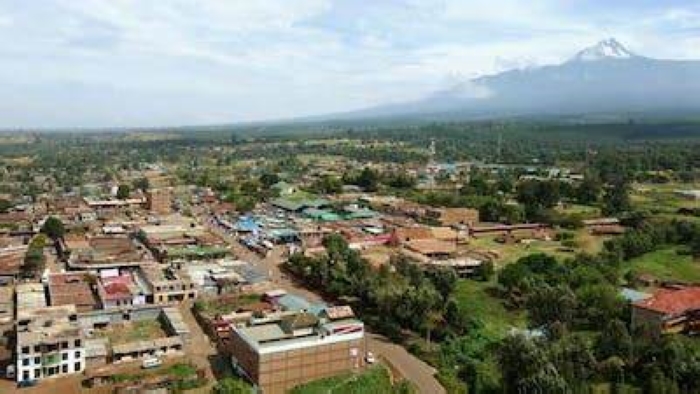AN AFRICAN CRADLE IN CRISIS
PROLOGUE
I had never imagined in my childhood that I would be involved in the resolution of the Congo crisis.
However in 1972 Hutu refugees arrived in our home at Oloitoktok fleeing from the horrendous Burundian Tutsi soldiers’ massacre or genocide of the Hutu.
I was 10 years old but always a good student of history making clear observations.
My parents empathized with the fate of the Hutu, having gone through a tumultuous Mau-Mau Emergency period in Central Kenya.
As early as the 1940s, they had settled at Endonet, location of Oloitoktok, alongside the Tanzanian border where they lived in peace, since the Maasai were perceived by the British colonialists as loyal.

They would however be repatriated back to Central Kenya concentration camps in 1953.
The Hutu farmed and were paid through crops akin to the share cropping system of olden times.
They did not enjoy the assistance from the United Nations High Commissioner for Refugees (UNHCR) then but lived on traditional African hospitality.
Their knowledge of Kiswahili made their life easier.
I would later study peace building and conflict management in my graduate studies in the fire engulfed California.
This would ground me in professional peace studies cementing an earlier exposure to impact of conflict in the Great Lakes Region.
In 2014 I would travel to Uvira in South Kivu after landing in Bujumbura, Burundi.
For the next 6 years I would travel in and out of South and North Kivu including Bukavu and Goma alongside Rwanda and Burundi.
Here are my observations from strategic, historical and Geopolitical lenses;
CRY MY BELOVED COUNTRY
As a child of farmers I was amazed by the fertility of the soil in the Kivus, only to learn later that the region had other endowments.
Some minerals in DRC are so close to the earth surface that they could literally be accessed by a simple spade or hoe.
This natural gift and today with technological revolution, its soils and rocks Barbour rare earths and minerals being craved by modern day ‘Pirates’.
This is the curse of the Congo, with no stable government undermined by Western Deep State operators.
The nation’s founding father Patrice Lumumba was assassinated and a military man, Joseph Mobutu Sese Seko installed by Western powers. The rest is history.
ENDEMIC STATE WEAKNESS
The state has had a deliberately weak Army (FARDC). Through earlier so-called peace talks with Rebels, the army was infiltrated by foreign armies and its legitimacy greatly compromised.
Rwanda lost this influence under the current patriotic leadership of Felix Tshisekedi, son of a doyen of Congolese opposition politics (Etienne Tshisekedi).
COVETING OF RESOURCES BY WESTERN FORCES USING RWANDAN DOGS OF WAR
The Rwandan grievance of displacement from the pinnacle of state influence in Congo, informs the current conflict with history of previous conflicts involving the Tutsi diaspora in eastern Congo, (currently camouflaged in amorphous M23 political and military bogeyman), employed as a bargaining chip.
This has been a quintessential political Trojan horse well employed by the current deceptive leadership in Kigali.
GLOBAL POWER DYNAMICS
The collective West has been struggling to control African resources against China and militarily against Russia and their Satellite alliances.
The entry of South Africa National Defense Force with tacit support from the BRICS and SADC alliance changes the Western dominated military and intelligence strategies hitherto employed in the Democratic of the Congo (DRC) conflict.
It also changes the hitherto Rwandan dominated military maneuvers and war narratives
PROJECTED SCENARIO AND PEACE MAKING
The conflict could explode as a regional war then expose American and French underbelly in the scramble for African resources.
It could change power and leadership dynamics in the region, with concomitant impact on ethnic power balances and realignment.
The entry of Russia and Chinese military proxies could raise the conflict into a global dynamo inviting multilateral concerns and resolutions.
The United Nations remains a discredited Western proxy, despised in the Congo as a toothless bulldog if not a party to the looting of the Congolese resources.
PEACE EFFORTS
Unlike in the past, Kenyans no longer perceived as a neutral arbiter in the conflict courtesy of current untrustworthy leadership.
SADC remains the only credible arbiter though also an active participant in the conflict. Like Kenya, EAC is compromised by Rwanda and Ugandan historical baggage.
EPILOGUE
I remember the great peace efforts of the Congolese human rights and democracy activist whom I met in Goma and Bukavu, the Congolese Police despite their institutional weaknesses, the Regional administration, the Nobel Laureate Doctor Mukwege in Bukavu, among other civil societies and Regional Peace Agencies whose work is negated by current conflict.
The Regional, African and global human rights and peace-building activists need to raise their voices and active restoration of the peace train the region to save the greatly and longtime burdened peace-loving population of Eastern DR Congo.

